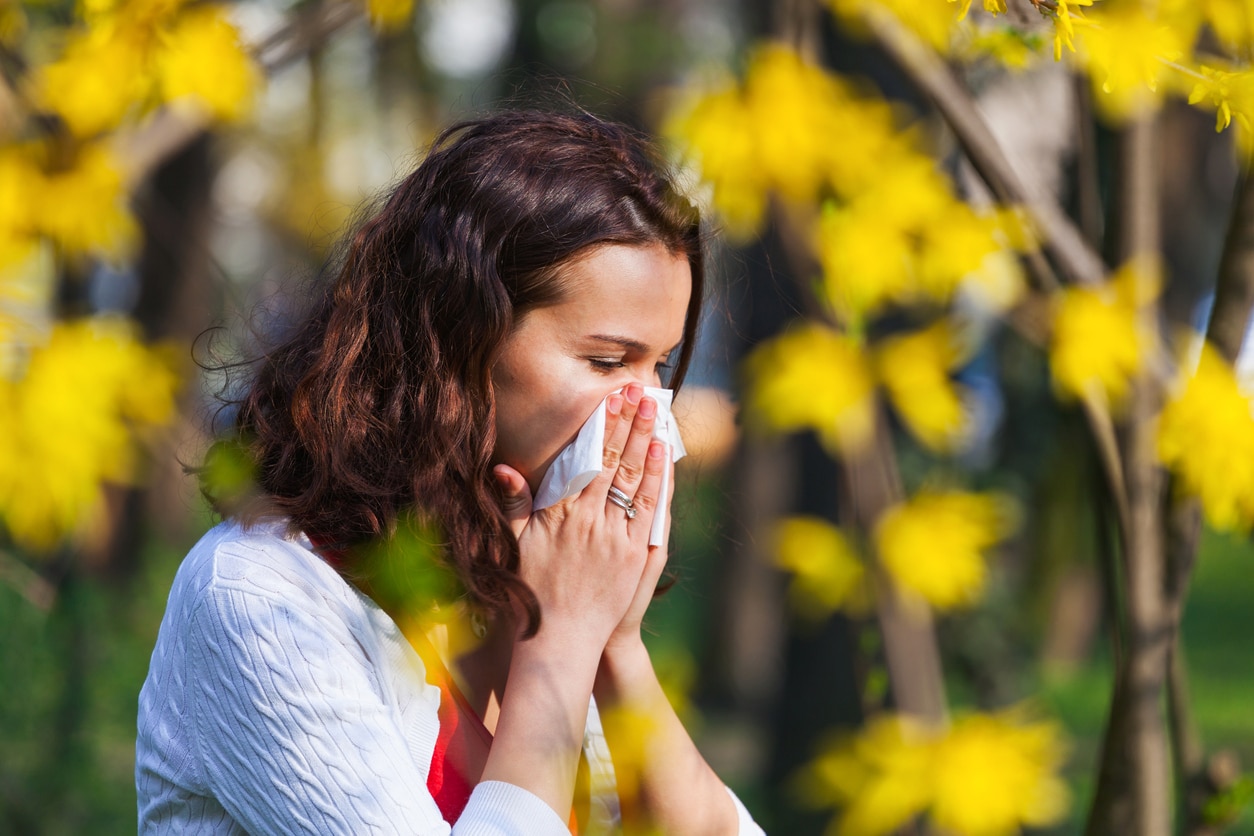The start of spring brings budding flowers, heavy rains and the sunny days you may have missed over the winter. Unfortunately, along with the many positives of spring comes one downside—allergies. With the first day of spring fast approaching, learning how to manage your allergies is essential to enjoying a symptom-free or low-symptom season.
Why Do I Have Allergies in the Spring?

Seasonal allergies, or hay fever, affect approximately 20% of the United States population. Allergy symptoms occur when you encounter allergens (substances your body identifies as harmful even if they aren’t) you’re sensitive to. One of the most common types of allergens is pollen. When the trees in Webb Bridge Park begin to bloom and flower, they release tons of pollen. The pollen floats through the air and enters your system through your eyes, nose and mouth, leading to an allergic reaction.
What Are the Symptoms of Hay Fever?
Symptoms of hay fever may include:
- Runny or stuffy nose
- Red, itchy watery eyes
- Excess mucus production
- Sneezing or cough
- Fatigue
Hay fever can get in the way of a lovely picnic day in the park. Learning how to manage your symptoms and avoid allergens can make a huge difference in your spring experience.
How Can I Manage Hay Fever?
Several ways you can help nip your spring allergies in the bud include:
- Avoidance. Allergen avoidance is crucial to managing your symptoms. While you can’t control the amount of pollen outside, closing the windows in your home, showering when you come home and avoiding the park on high-pollen days can make a huge difference.
- Medication. Allergy medications like provider-approved antihistamines, decongestants and nasal sprays can temporarily reduce your symptom severity.
- Immunotherapy. Allergy immunotherapy works by introducing the patient to small doses of an allergen through shots or drops, increasing the dose over time to reduce sensitivity. Your provider will likely recommend immunotherapy if your allergies are severe or if you have not responded to medications.
You can confidently tackle your hay fever this season by practicing allergen avoidance and talking to your allergy specialist about symptom management options like medication and immunotherapy. Contact ENT of Georgia North today to make an appointment with one of our specialists.